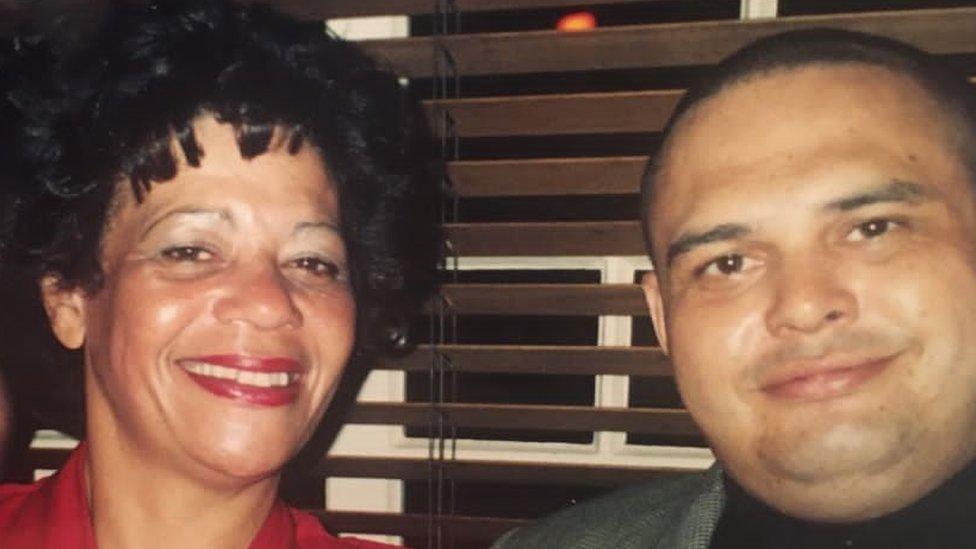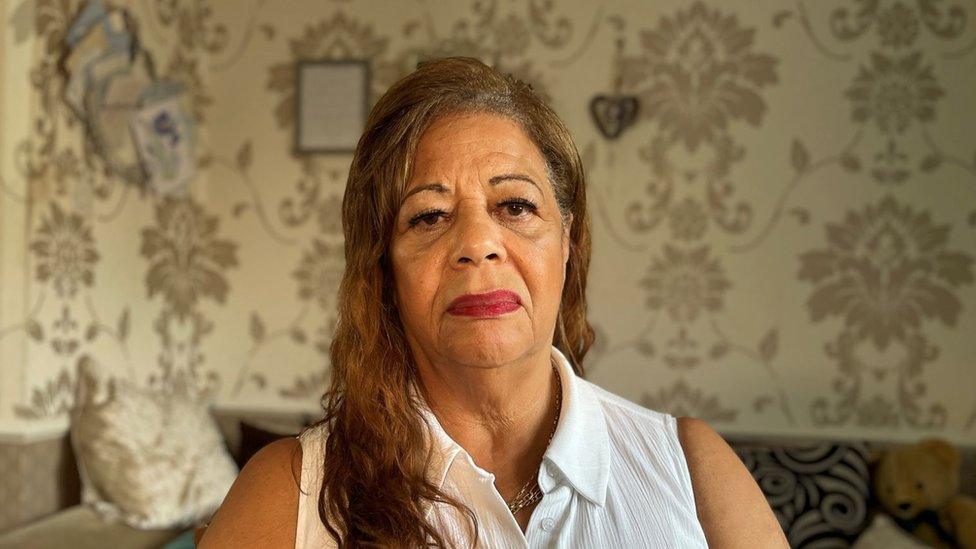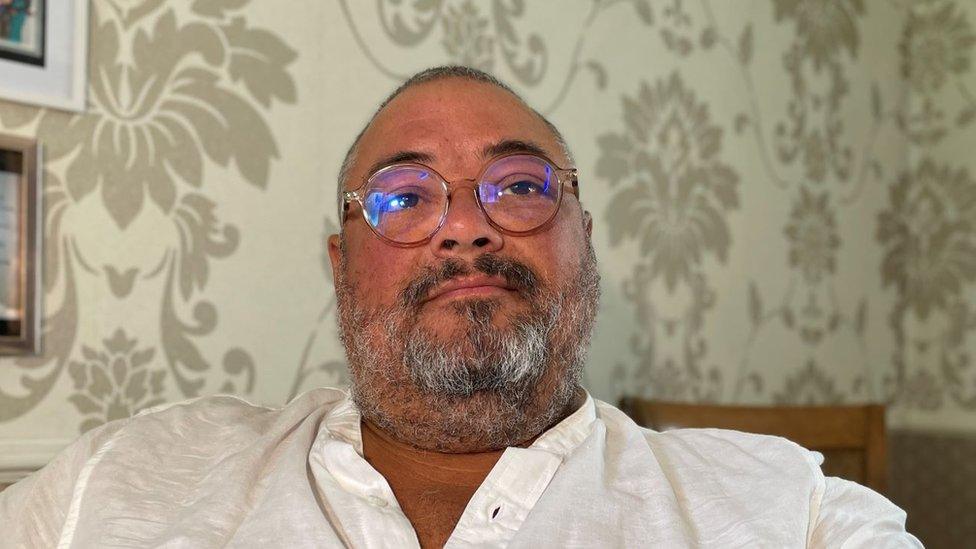HMP Chelmsford prisoner who died was 'failed in every way'
- Published

Pauline Clark said her son Lance was let down by the prison system
The family of a man with mental issues who took his own life in prison said he was "failed in every way".
Lance Clark, 53, died on 28 November 2019 at HMP Chelmsford while on remand in relation to a public order offence.
Last month, an inquest jury returned a narrative verdict and said a number of failings at the prison contributed to his death.
His mother Pauline Clark said: "I am so angry with the way he was treated."
The inquest at Essex Coroner's Court, Chelmsford, found the prison completed "inadequate assessments" of Mr Clark throughout his time in custody.
"Insufficient consideration was given to [his] history and frequency of self-harm and triggers," the proceedings concluded.
Mr Clark had bipolar disorder with a history of anxiety and was found to have self-harmed several times while in custody before he took his own life.
The jury also identified a series of failures by the prison including not completing "a full mental health assessment via a psychiatrist".

Pauline Clark said she was surprised by the number of failures identified by the inquest
Mr Clark had a job in prison as a cleaner but after an incident where he threw a plate of food against a wall it was revoked as a punishment.
The inquest found the way in which he was dismissed from his role "was not handled suitably" and "probably contributed" to his death.
Mrs Clark, who lives in Chelmsford, said: "The job to Lance was life-saving, he enjoyed the job. There should be a way to give [prisoners] more outside activities instead of being locked in a cell with their own thoughts."
She also criticised the way the prison handled the Assessment, Care in Custody and Teamwork (ACCT) plan, which outlined support for prisoners at risk of self-harm or suicide.
The inquest found Mr Clark was not managed under the enhanced ACCT process which "probably contributed to his death".
Mrs Clark said: "If a prisoner is continually self-harming they should never be taken off an ACCT because you never know whether they'll do it again."

Lance Clark's brother, Aaran, said those with mental health issues should not always be remanded in custody
Mr Clark's brother, Aaran Clark, 52, said: "I think he was failed in every way from remanding someone with serious mental health issues and then failing to care for him in the right manner.
"It's a cataclysmic failure."
He said the first the family knew of the self-harming was when his brother died, adding: "He would have been far better at home with a tag [and] he would be alive today."
The Ministry of Justice said in a statement it would "carefully consider the inquest's findings and respond in due course".
It said the government was "investing £37m over the next three years to make prisons safer through improved suicide and self-harm awareness training and prison helplines".

Find BBC News: East of England on Facebook, external, Instagram, external and Twitter, external. If you have a story suggestion email eastofenglandnews@bbc.co.uk, external